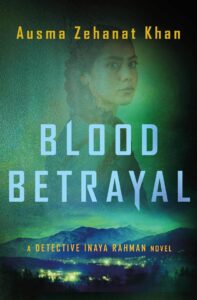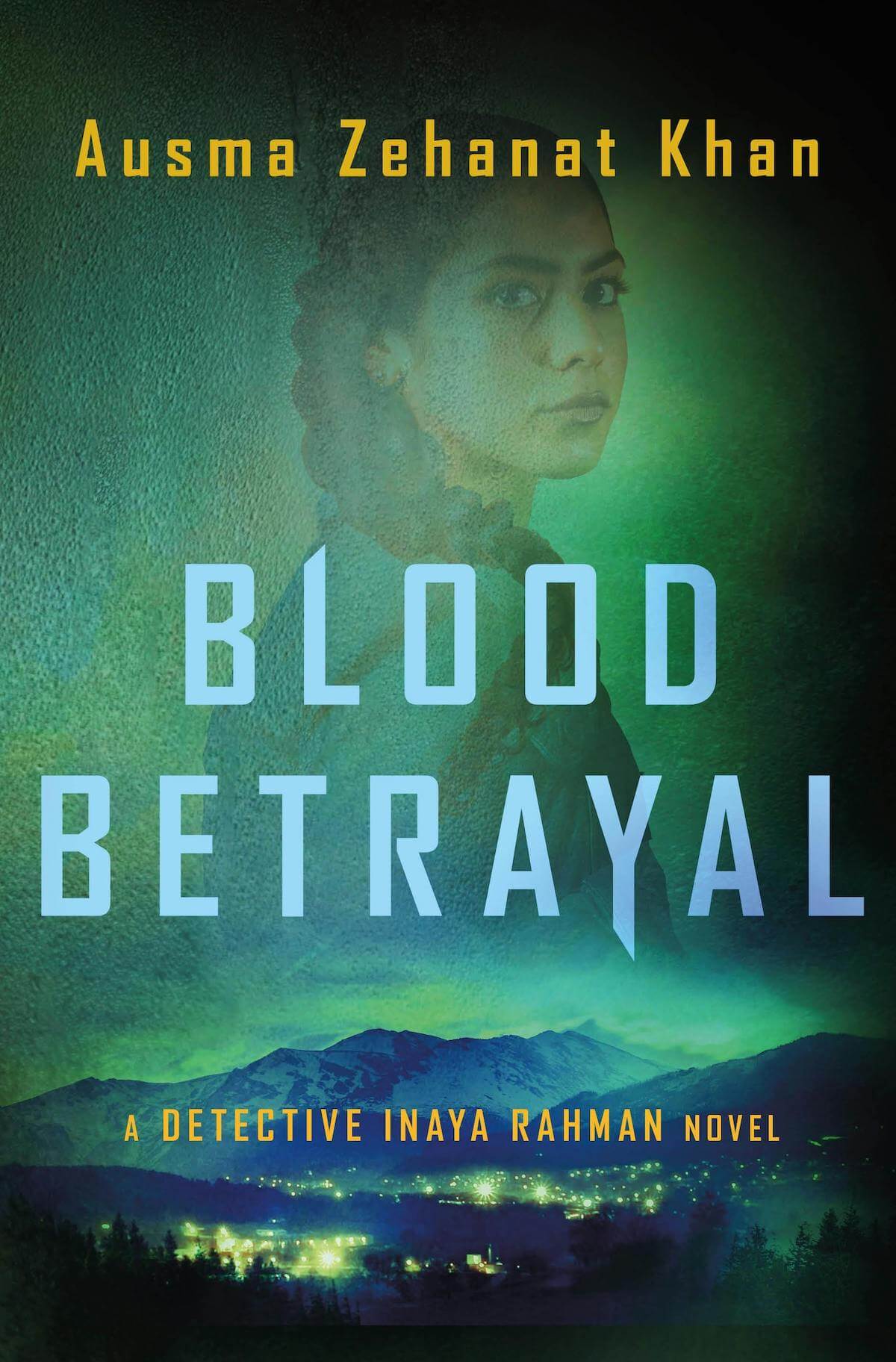Police brutality and community mistrust at center of new novel in Blackwater series
Detective Inaya Rahman brings her signature empathy and experience to two complex cases
Detective Inaya Rahman brings her signature empathy and experience to two complex cases
Author Ausma Zehanat Khan holds a Ph.D. in international human rights law and her specialization in military intervention and war crimes in the Balkans lends a great deal of credibility to some of the topics she tackles in her new novel, Blood Betrayal. She transplants many of the issues found in the middle east to the Denver area and showcases how trauma can pass from one generation to the next.

Ausma Zehanat Khan
While investigating two fatal police shootings, this police procedural delves into a lot of issues dealing with race and diversity in religious beliefs. Since this is Khan’s second book to feature Detective Inaya Rahman, I may have missed some of the clues from the first book in the series, Blackwater Falls, but the story integrates into the Denver area smoothly. Khan includes any details necessary to this story and I pieced together the key plot points from the first book without having to read it.
Khan reveals several of the characters through their own points of view, not just the main character Inaya, but her lieutenant, Seif, and her partner in policing,“Cat”, short for Catalina. The ensemble keeps things interesting and they each share a significant amount of time in the novel, providing the reader with several diverse perspectives.
From the start, Inaya appears as a loving daughter and sister of a refugee family who left Afghanistan behind and ended up in Denver, Colorado. She attempts to connect with this past through her father, who is reluctantly sparse with any details about atrocities he escaped with his family. She applies the same level of care and tenderness to her professional life as a detective for the Community Response Team, a division of the Denver Police Department meant to provide outreach to communities marginalized by the department. When two fatal police-involved shootings on the same night shake up the department and the community, Inaya finds herself investigating a potential police coverup while maintaining overwhelming empathy with diverse sets of Black, Latinx, and LGBTQ communities, all reaching a boiling point over the “murders” of their young. Inaya finds her past turmoil of dealing with the internal prejudice of the Chicago Police Department coming to haunt her in Denver. She handles the conflict with a grace and poise that counters traditional roughneck, hard-nosed fictional detectives who will stop at nothing to get their man. Her instincts about people and her empathy for the victims’ families transcend the genre.
sets of Black, Latinx, and LGBTQ communities, all reaching a boiling point over the “murders” of their young. Inaya finds her past turmoil of dealing with the internal prejudice of the Chicago Police Department coming to haunt her in Denver. She handles the conflict with a grace and poise that counters traditional roughneck, hard-nosed fictional detectives who will stop at nothing to get their man. Her instincts about people and her empathy for the victims’ families transcend the genre.
Kahn masterfully weaves in odd occurrences that deftly symbolize the growing conflict between police sworn to protect and increased violence against minority communities. One such moment comes during a memorial protest of one of the victims. The community has organized to block off a portion of the street with barricades. Police show up in riot gear, prepared to use violence if those assembled do not remove the barricades from the street. Inexplicably, a naked woman sits down in front of the advancing line of police—the news nicknames her Altagracia. In a strangely surreal response to the violence surrounding them, several other women start to follow her lead. The clash is finally stopped by Lieutenant Seif ordering the police to stand down.
The story continually explores the issue of systemic violence in America’s police forces. This becomes a type of violence handed down over generations. The police hand down the prejudice—a smaller set of the police in the novel even use “patriots” as a part of their eponymous call to action in suppressing and abusing minorities in their precinct. Victims pass down injustices against them, in the case of one victim, leaving a son to mourn the loss of his father to police violence and inheriting a distrust of police and their actions against him for the color of his skin.
Overall, I can’t help but think of fictional victims in Blood Betrayal as their real-world counterparts. The book acts almost as an elegy to those no longer with us due to police violence—Eric Garner, Michael Brown, Freddie Gray, Breonna Taylor, George Floyd and so many others. The novel also provides perspective on the idea that there are some police working to change things, erase the prejudice and investigate the truth behind the violence. Khan deals with this divisiveness with genuine empathy and unravels a really good mystery filled with an impressively diverse cast of characters.
Kurt Bunch has a MFA in creative writing from Regis University in Denver, Colorado. He received a BFA in Film & Media Studies from University of Florida. He is eternally searching for what he wants to be when he grows up. He splits his time between Colorado Springs and the Pacific Northwest while enjoying family life, travel, sailing, crabbing, reading and napping, in between compulsive fits of writing novels and screenplays.
Click here for more from Kurt Bunch.

